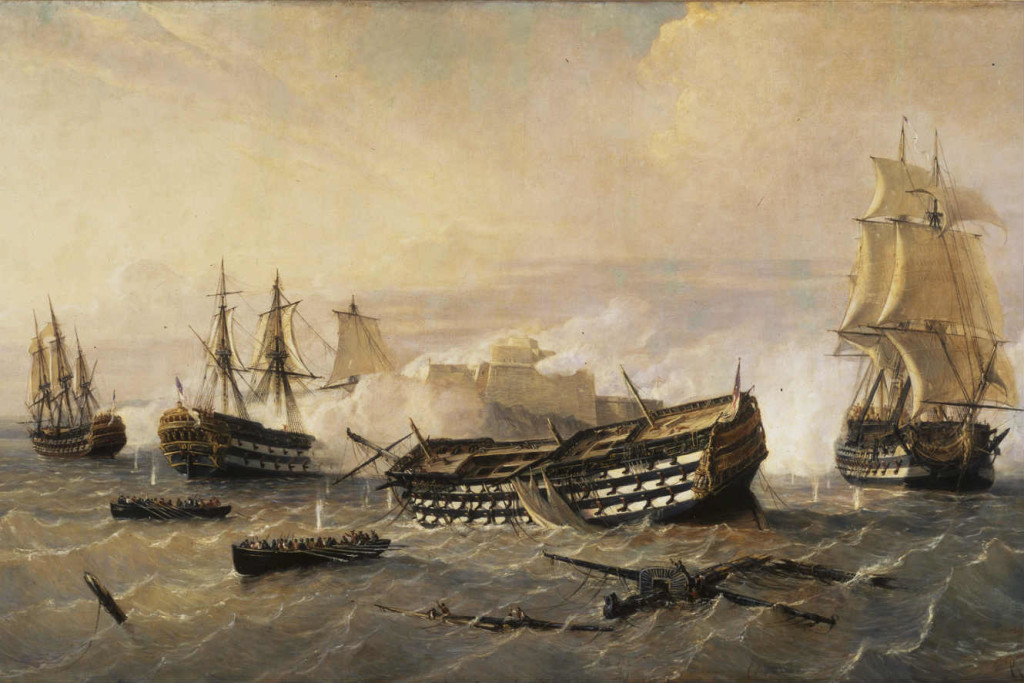Corbett vs. the Caliphate: What a long-dead naval strategist tells us about combatting Islamic State

Editor’s Note: This piece on the War on the Rocks Hasty Ambush blog is published in partnership with the Hoover Institution’s Military History in the News.
 Julian Corbett (1854-1922) has long been hidden in the shadow of Clausewitz and by the baneful glare of modern think tanks. Renowned as a naval thinker, Corbett was far more—and ever adept at pointing out how absolute theories collapse when faced with reality.
Julian Corbett (1854-1922) has long been hidden in the shadow of Clausewitz and by the baneful glare of modern think tanks. Renowned as a naval thinker, Corbett was far more—and ever adept at pointing out how absolute theories collapse when faced with reality.
Of particular pertinence to the current befuddlement of U.S. policy toward the Islamic State and the general disorder of the Middle East is his study of the prelude to and first year of the Seven Years War. First, Corbett highlights the indecisiveness and nervousness of the Newcastle government, which led to a doomed attempt to calibrate a naval policy toward France that was not too cold, not too hot, but just right. The result was delayed and muddled orders to the fleet.
Second, Corbett notes the cost of those vague orders. Trained to believe that nothing was as important as closing with the enemy, commanding officers on remote stations precipitated actions whose diplomatic costs outweighed the strategic advantages. Others, such as the unfortunate Admiral Byng, interpreted their ill-conceived orders as justifying caution to a fault. The consequence of an indecisive government and an uncomprehending maritime service was a year of failures for Great Britain, the naval superpower of the day.
The lessons for us? Once a nation’s leadership turns to the military instrument, attempts to calibrate warfare for political convenience are likely to lead to disappointing, even disastrous, results. It’s dangerous to turn to the military simply because it’s handy—a political leader only should do so when he has a clear purpose, a vision for achieving it and, not least, the will to see things through.
And when that leader does order out the fleet—or, today, the unmanned aerial vehicles and fighter-bombers—he has to insure that his flag officers understand specifically what he wants to achieve and how their endeavors must support his strategic framework. But the leader also has to understand the potential costs of the indecisive and hesitant use of military action.
Another lesson Corbett draws from that first truly global war two and a half centuries ago is that mere displays of force rarely work and often prove counterproductive. Ostentatious blockades and the unimaginative positioning of fleets (or, today, sanctions and symbolic deployments) failed the British as the French—less prepared but, initially, more imaginative—evaded the English fleets and squadrons, then gained the war’s second notable victory (after Braddock’s disaster in the American wilderness) with a combined operation against Port Mahon and the island of Minorca.
The British had the initiative, which they squandered. They should have trounced the French promptly and handily. Instead, indecision, bureaucratic timidity, flawed orders, and skillful opponents resulted in defeats and, in time, the fall of a government—which was, fortunately, replaced by one of far more skill and ruthlessness.
Corbett has been sidelined because we no longer expect classic fleet actions, but his true value lies in his grasp of strategy—especially at the nexus of politics and military action. And, unlike most theorists of any stripe, he tells a damned good story.
Ralph Peters is the author of twenty-nine books, including works on strategy and military affairs, as well as best-selling, prize-winning novels. He has published more than a thousand essays, articles, and columns. As a US Army enlisted man and officer, he served in infantry and military Intelligence units before becoming a foreign area officer and global scout. After retiring in 1998, he covered wars and trouble spots in the Middle East and Africa, and remains Fox News’s strategic analyst. His recent New York Times best seller, Cain at Gettysburg, received the 2013 Boyd Award for Literary Excellence in Military Fiction from the American Library Association.

